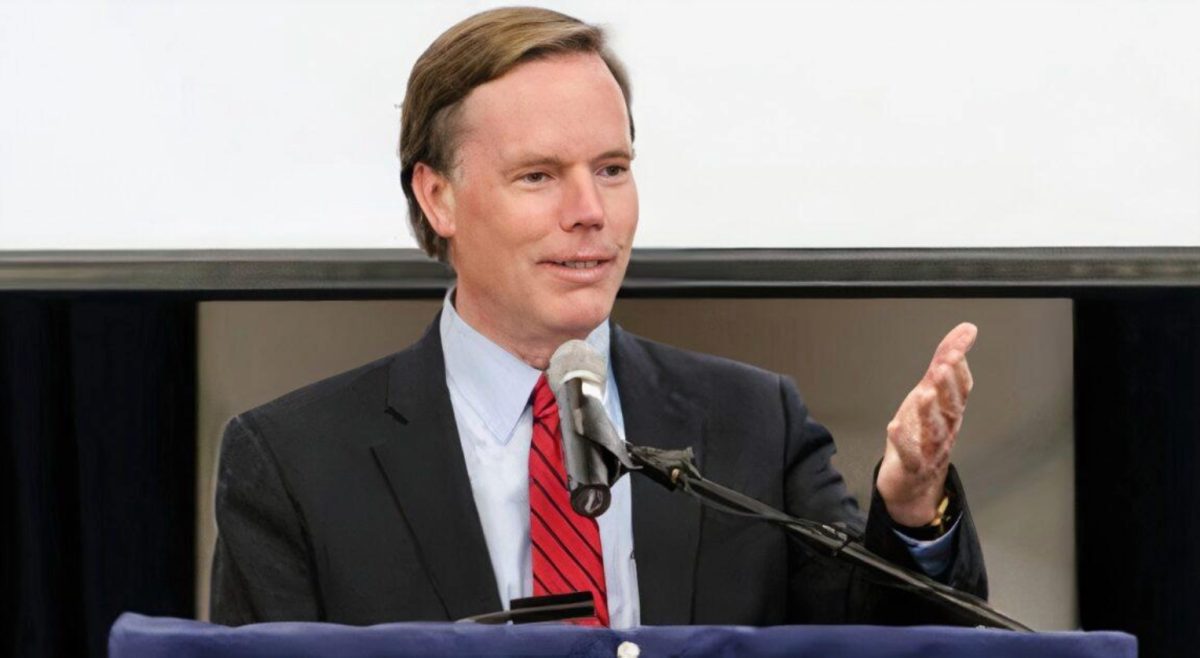
Burns, BC '78, most recently served as ambassador to China under the Biden administration. (Heights Archives)
Former U.S. ambassador Nicholas Burns warned that the United States risks political disadvantages against China if it fails to resolve internal divisions and build national unity.
“Urgently, we’ve got to rebuild ourselves at home,” Burns said. “We are a divided, disputatious, and sometimes dysfunctional darkness. A country cannot be powerful and effective overseas if they’re divided at home.”
Burns, BC ’78, returned to the Heights on Tuesday for the Winston Center for Leadership and Ethics’ fall Clough Colloquium. After graduating from BC, Burns served as a U.S. diplomat for over 30 years, acting most recently as ambassador to China during the Biden administration.
He is currently a professor of the practice at Harvard’s Kennedy School of Government.
Burns stressed the unique global influence of both the United States and China, emphasizing their geopolitical rivalry.
“We’re really the only two societies that have a full global reach, that we can have an impact because of our economic, cultural, political, and military power,” Burns said.
Yet, the integrity of U.S. international relations appears to be at risk. According to Burns, current trade policies—particularly tariffs imposed on allied nations—are counterproductive, “driving and pushing [our] allies away.”
Alongside trade, the United States must reinvest in research, Burns argued. Rather than increasing funding for technological advancement, the U.S. government has substantially reduced its research budget, further harming the country’s competitive edge, according to Burns.
“At Caltech or Carnegie Mellon or MIT or Stanford, your budgets are being cut,” Burns said. “At Harvard, of course, we’ve had several billions of dollars taken away—billions of dollars in research for cancer, for other diseases, for scientific breakthroughs in quantum biotech.”
The repercussions of the Trump administration’s changes, such as dismantling government-funded international news sources like Radio Free Asia and Voice of America, are harming the United States by making it harder to counter China’s propaganda, Burns said.
“As China portrays its propaganda abroad—across the world—about how weak we are and our democracy is failing, it can’t fire back,” Burns said.
Citing Abraham Lincoln’s Lyceum Address, Burns suggested that before the United States. attempts to reconcile impaired relations overseas, it must first reconcile with itself.
“We have to close ranks and find a way through leadership at the national level, the state level, community level, families, here at Boston College,” Burns said. “The north south divide, the urban rural divide—these traditions that are beginning to tear our country, to pull our country apart at the seams.”